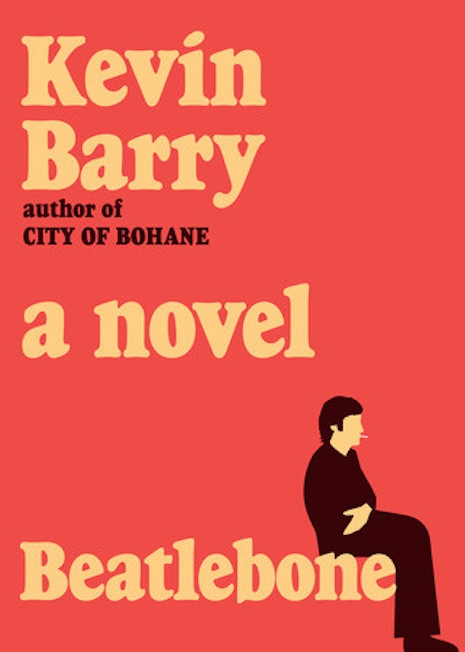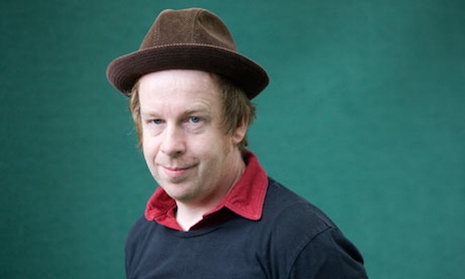
If you ask me, the most audacious and amusing novel of the year is Beatlebone, by Irish novelist Kevin Barry. Beatlebone posits a charged confrontation between a world-weary John Lennon and the mostly quaint but also hippie-activated Irish countryside of 1978, two years before Lennon’s actual slaying at the hands of Mark David Chapman. In the novel, the fictionalized Lennon, having grown tired of baking bread on the Upper West Side at the age of 37, is eager to find some solitude on a remote property he owns called Dorinish Island, which is located off the western shores of Ireland. (The reader is informed several times that the locals would call it “Durn-ish” Island.)
Lennon plops himself on the shores of Clew Bay with the stated intention of making it to his island, where he intends to spend a dose of time in utter solitude. Lending the proceedings some drama, a phalanx of journalists is said to be in hot pursuit. Lennon is placed in the care of an older local fellow named Cornelius O’Grady, a marvelous creation who seems to embody all of the despondent, hard-drinking wisdom of rural Irish life. After the matron at Lennon’s first hotel sells him out to the local scribes, O’Grady takes him back to his place, which shortly leads to a raucous visit to the local pub, known as the Highwood, where he drunkenly abandons his disguise of “Kenneth” and takes to the stage, and a local hotel said to be populated with “your own style of people precisely” (this turns out to be a trio of intervention-addicted hippies).

Novelist Kevin Barry
Tropes from Lennon’s previous life crowd his mind until the events in Ireland unloosen him a bit. He is annoyed that The Muppet Show keeps pestering him to make an appearance (Elton John was on just the other week, and he was “superb, John,” notes Cornelius) and obsessed with the inscrutable opening lines of Kate Bush’s then-new “Wuthering Heights.” He cheekily names a local pooch “Brian Wilson.” Eventually the pop culture references drop away, and eventually Lennon hits upon a new musical concept that bears the same title as the book—we even get a glimpse of the session, as preserved on “the Great Lost Beatlebone Tape.”
Barry interrupts the novel in order to explain some of the real-life basis for the novel and his site-specific researches. John and Yoko actually did own Dorinish Island, they paid £1,550 for it in 1967 and even spent time there before turning it over to hippie squatter par excellence Sid Rawle and his followers for a couple of years, an intriguing interlude that ended abruptly when the island’s supply tent burned down. Furthermore, a major scene of the novel takes place at the Amethyst Hotel, which is also a real place. And so forth.
Barry’s writing is unabashedly poetic, frequently taking on a purple, word-drunk quality. At times the prose is arranged linearly down the page, like poetry, and at other junctures the text is rendered in pure dialogue, like a play. Beatlebone honorably merits the signifier “Joycean.” Here is a brief snippet, chosen almost at random:
A street gang of sheep appear—like teddy boys bedraggled in rain, dequiffed in mist—and Cornelius bamps the hooter—like teddy boys on a forlorn Saturday in the north of England, 1957—and the sheep explode in all directions and John can see the fat pinks of their tongues.
Mutton army, he says.
The sense of liberties gleefully taken provides Beatlebone with its engine. A world-famous and beloved rock star (soon to be assassinated) evading notice and disappearing into the stalwart Irish countryside—none of it works nearly as well if the main character was, say, Bucky Wunderlick, the fictional rock star of Don DeLillo’s 1973 novel Great Jones Street—because it’s John fucking Lennon, we are able to fill in the blanks so much more readily. Barry does a very good job of recapitulating Lennon’s distinctively reedy vocal patterns, although in all honesty he probably makes him a bit too garrulous (and Ir-ish), but then again, what novelist would be capable of nailing this? The high-wire act is part of the nervy fun of reading Beatlebone.
Continues after the jump…





